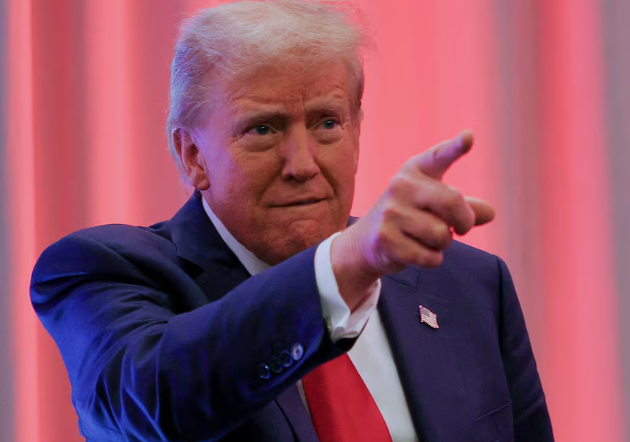Prosecutors opposed Donald Trump’s request to dismiss the hush money case now that he is president-elect and asked a judge on Tuesday to establish a schedule to litigate the matter.
Trump, 78, originally faced sentencing on November 26, but New York State Supreme Court Justice Juan Merchan paused all proceedings last week at the request of Manhattan District Attorney Alvin Bragg’s office.
The prosecutors agreed to a delay but urged Merchan to impose a deadline for Trump to formally file his dismissal request. They proposed responding to Trump’s motion by December 9. While they acknowledged the possibility of deferring all proceedings until Trump completes his four-year presidential term starting January 20, they stopped short of fully endorsing that option.
Steven Cheung, a spokesperson for Trump’s campaign, described Bragg’s position as “a total and definitive victory” for Trump.
Trump, who served as president from 2017 to 2021, aims to enter his second term unburdened by the four criminal cases he faces. His opponents had predicted these cases would derail his 2024 candidacy for the White House.
In May, a court convicted Trump of falsifying business records to conceal a $130,000 payment made by his former lawyer Michael Cohen to adult film actress Stormy Daniels. Daniels alleges a sexual encounter with Trump before the 2016 election, a claim Trump denies. This marked the first time a U.S. president—former or sitting—received a criminal conviction or charge.
Prosecutors cited the need to balance “competing interests” between advancing the criminal case and safeguarding the office of the presidency. They requested additional time to weigh their next steps.
Trump pleaded not guilty, framing the case as a politically motivated attack by Bragg, a Democrat, intended to disrupt his campaign.
Trump’s defense lawyers pressed Merchan to dismiss the case, arguing that allowing it to linger would impose “unconstitutional impediments” on Trump’s ability to govern. They also sought to vacate the conviction and dismiss the charges, citing a U.S. Supreme Court ruling from July. The ruling stated that presidents cannot face prosecution for official acts or have evidence of such acts used in personal cases. Bragg’s office countered that the case addresses purely personal conduct.
The charge of falsifying business records carries a potential sentence of up to four years in prison. Before Trump’s election victory, experts considered a prison sentence unlikely, with fines or probation deemed more plausible. Trump’s win over Democratic Vice President Kamala Harris in the November 5 election further complicated the prospect of imposing a sentence that might impede his presidential duties.
Trump also faces three additional state and federal cases from 2023. One case involves classified documents he retained after leaving office, and two others address his attempts to overturn the 2020 election results. In July, a federal judge in Florida dismissed the classified documents case, prompting the Justice Department to reevaluate the federal election-related case.
Trump continues to face state criminal charges in Georgia for his efforts to reverse the 2020 election results in that state. However, the case remains unresolved.
As president, Trump cannot terminate the New York or Georgia cases, which reside in state courts, but his Justice Department could potentially end the federal cases.

